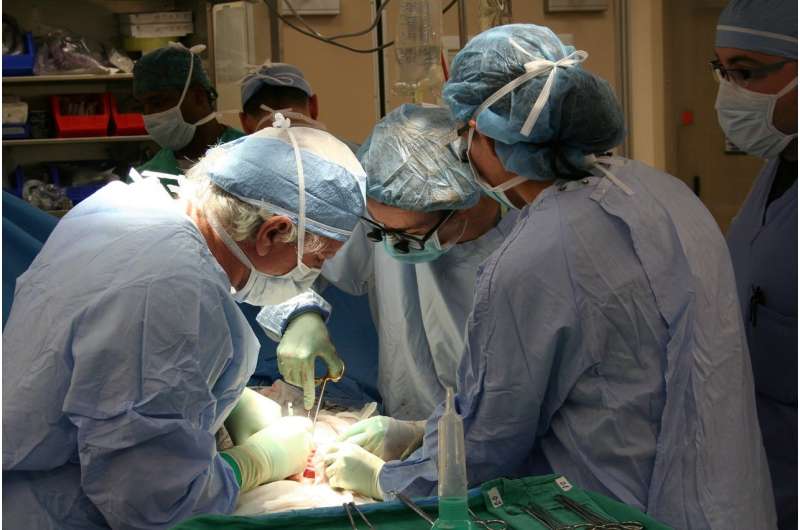

New research presented this week at ACR Convergence, the American College of Rheumatology’s annual meeting, shows that people with systemic autoimmune diseases do as well after lung or heart-lung transplants as those without any systemic causes of end-stage lung disease. This new data suggests that this life-saving treatment is a viable option for patients who have often been denied these transplants due to concerns about risks associated with their autoimmune disease.
People with systemic autoimmune diseases such as systemic sclerosis, rheumatoid arthritis (RA) and others can develop irreversible lung damage, in some cases leading to end-stage lung disease and early death. While lung transplantation could save their lives, many centers withhold surgery from these patients due to concerns about post-transplant risks caused by their abnormal immune systems and disease-related damage beyond their lungs. Researchers at Stanford University in Palo Alto, CA, compared how people with systemic autoimmune diseases fared after lung and heart-lung transplants with patients who have no systemic causes of their end-stage lung disease during a retrospective cohort study.
“As a result of their systemic disease and prior immunosuppressive treatments, patients with autoimmune diseases present with unique challenges when undergoing lung transplantation. Studying and addressing these challenges is critical to being able to offer this life-saving intervention to the many patients in need,” says Jason H. Melehani, MD, Ph.D., a fellow in rheumatology and pulmonology at Stanford and the study’s co-author.
The study included 75 lung or heart-lung transplant patients who had surgery at Stanford between Jan. 1, 2005 and Jan. 1, 2020 based on ICD-9 and ICD-10 medical billing codes. Patients were matched with 152 controls who had no autoimmune disease, according to age, gender, the year of their transplant, the indication for the surgery (such as interstitial lung disease vs. pulmonary hypertension), and the type of transplant they had, including one lung, both lungs or heart and lung. Researchers compared overall survival after transplant accounting for all of the variables described.
Patients included in the study had a variety of systemic autoimmune diseases, including 17 with RA, 16 with systemic sclerosis, 15 with sarcoidosis, 14 with idiopathic inflammatory myositis, eight with Sjögren’s syndrome, four with mixed connective tissue disease and one with systemic lupus erythematosus (SLE or lupus).
One-year survival rates for patients with systemic autoimmune diseases were 79.4%, while five-year survival rates for these patients was 54.9%. Patients in the matched control cohort had a one-year survival rate of 90.3% and a five-year survival rate of 57.7%. The hazard ratio for overall survival after transplant did favor patients without a systemic autoimmune disease. However, researchers found it was not significantly different for those who have one of the autoimmune diseases.
Source: Read Full Article